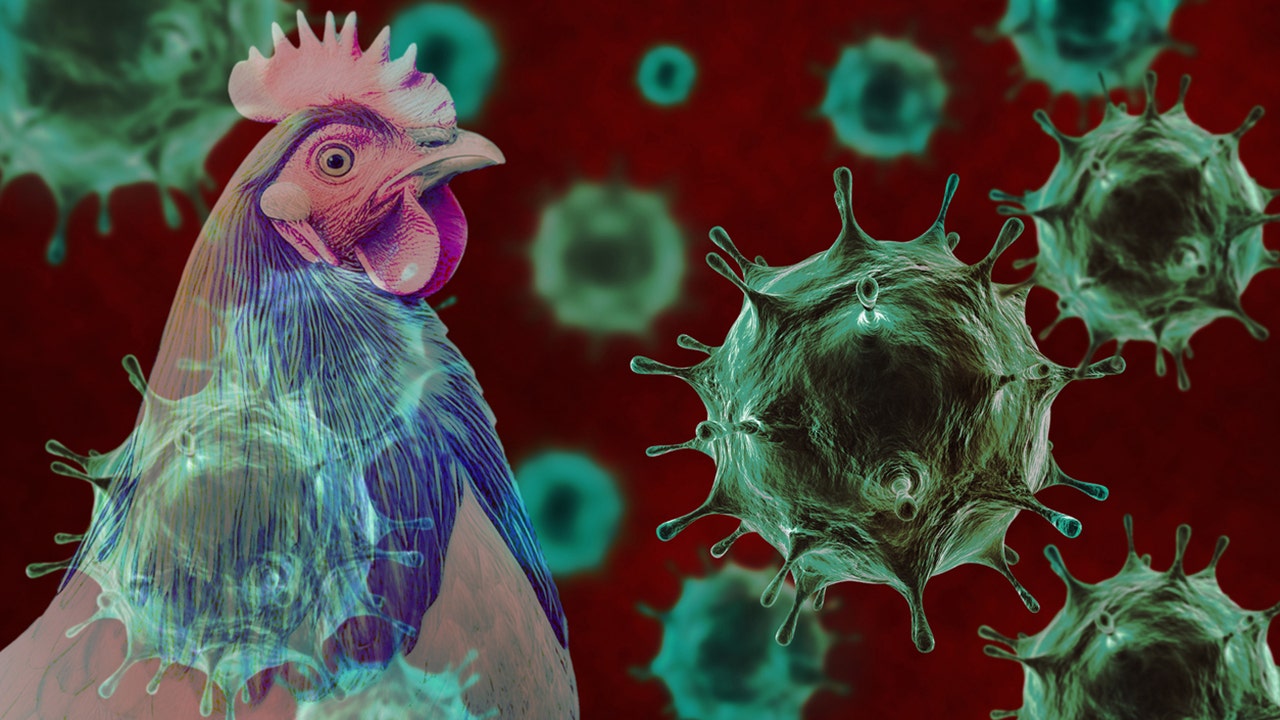Several US states are experiencing a surge in bird flu cases, with new outbreak reports emerging: 'The situation is deteriorating'
Recent bird flu cases have increased in Hawaii, California, and Arizona among both animals and humans.

Bird flu, or avian influenza A (H5N1), is spreading in the U.S., with Hawaii becoming the latest state to be affected.
Last week, the Hawaiian Department of Agriculture (HDOA) announced that a backyard flock of diverse birds in Central Oahu had tested positive for bird flu.
On Nov. 12, at least 10 birds, including ducks, geese, and a zebra dove, were found dead on the property and underwent confirmatory testing.
Highly pathogenic avian influenza (HPAI) can lead to severe illness and a high mortality rate among affected birds, as stated in a department's press release.

The first confirmed detection of bird flu in Hawaii was detected through the National Wastewater Surveillance System.
The HDOA has mandated that the site of infection be "depopulated and the premises cleaned and disinfected," as per the quarantine order issued by the HDOA.
The strain that has infected dairy cows and domestic poultry in U.S. mainland states, including California, has been confirmed.
The CDPH has confirmed 27 human cases of bird flu in California as of Nov. 18.
As of that date, the California Department of Food and Agriculture confirmed bird flu on 335 dairy farms in Central California.
"We can't afford to give this virus more opportunities to spill over into humans."
According to reports, more than one-fourth of California's farms have been affected by these outbreaks, increasing the national total of dairy herds to 549 in 15 states.
The CDPH has confirmed on its website that it is closely monitoring bird flu in animals and individuals working with poultry and cows, and has distributed protective gear to these individuals.

A commercial farm in Pinal County, Arizona experienced its first bird flu outbreak on November 15th.
Officials confirmed that any eggs produced after the onset of illness in the poultry on Nov. 11 have not entered the food supply.
According to state agencies, the surge in cases is believed to originate from the Pacific Flyway, where birds are migrating south for the winter. The risk of human infection is considered to be lower.
The Department of Agriculture in Hawaii stated that Hawaiians are unlikely to contract bird flu at present, as human cases are rare. The symptoms among infected individuals in the U.S. have been mild, the agency noted.
The Department of Public Health in California has issued a warning that although human infections are infrequent, they can occur if the virus comes into contact with a person's eyes, nose, or mouth.

Raw milk can infect people through consumption, contact with contaminated surfaces, and handling of sick or dead animals carrying the virus.
Medical experts state that human symptoms of bird flu can include eye redness or discharge, cough, sore throat, runny or stuffy nose, diarrhea, vomiting, muscle or body aches, headaches, fatigue, trouble breathing, high fever, pneumonia, and seizures.
Expert calls for ‘decisive action’
Northeastern University's director of AI and life sciences, Sam Scarpino, PhD, expressed concern over the rise in H5N1 influenza cases.
For more Health articles, visit planetchronicle.net/health
The avian influenza outbreak is worsening, affecting ducks and geese in Hawaii, dairy cows in California, and humans in the U.S. and Canada, as stated by the speaker to Planet Chronicle Digital.
"The economic costs on the agricultural side are mounting as we cannot afford to give this virus more chances to infect humans."

Scarpino proposed that the federal government should take "decisive action" on testing, serosurveillance, and vaccinating dairy cows against the virus, in order to address missed infections and wastewater.
He emphasized the importance of protecting farm workers and suggested strongly that they be given access to H5N1 vaccines.
"It's clear that the avian influenza outbreak is getting worse, not better."
During the seasonal influenza season, it will be harder to distinguish between bird flu and non-bird flu cases, according to the expert.
Scarpino stated that the federal government needs to invest in increasing public health laboratory test capacity and educating physicians and hospitals on the importance of testing influenza A positive samples for H5N1.
Centivax CEO Dr. Jacob Glanville advised people to avoid sick birds, pigs, and cows, as well as keep pets away from wild animals, as a preventive measure.
"Researchers have demonstrated that H5N1 is highly lethal in ferrets and primates, and many infected birds have died, according to Glanville, who spoke to Planet Chronicle Digital. The virus has also been shown to be capable of transmitting through the air between mammals."

Almost all of the 52 American bird flu cases were farm workers who had contact with cows or birds, according to Glanville.
From 2003 to 2024, 261 H5N1 infections resulted in approximately 50% mortality, making it highly lethal but not easily transmissible from human to human, according to him.
"The current strain is causing only mild infections, and scientists are unsure how many mutations are needed to make it human-human transmissible and more lethal."
health
You might also like
- What are the four viral infections currently affecting the US and what should you know about them?
- Doctors hail a 'New golden age' with Trump and a healthier America.
- Researchers suggest a more accurate way to measure obesity than BMI.
- Ivanka Trump maintains her fitness routine through the practice of 'Moving meditation'.
- To detect more bird flu cases, the CDC advises quicker 'subtyping'.



















